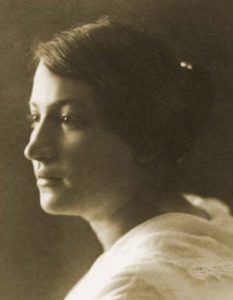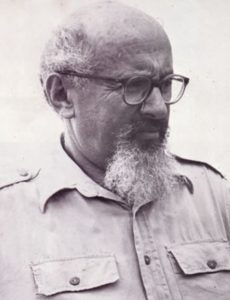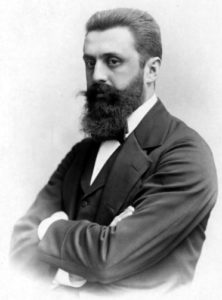Israel’s Joan of Arc

Sarah Aaronsohn
Sarah Aaronsohn (1890-1917) was born in Zikhron Yaakov to a Romanian-Jewish family which had settled in the Land of Israel during the First Aliyah to co-found a moshav. The moshav was later financed and supported by Edmond James de Rothschild (who renamed it Zikhron Yaakov after his father). Aaronsohn studied languages, and could speak Hebrew, Yiddish, Turkish, French, Arabic, and English. She married a wealthy Jewish-Bulgarian businessman and lived with him briefly in Istanbul. When the marriage unraveled, Aaronsohn returned to Israel. During her journey, she personally witnessed the horrors of the Armenian Genocide, and was deeply affected by what she saw. This inspired her to work against the Ottoman Turks, both to stop what was happening to the Armenians, and to prevent the same happening to Jews, as was rumoured at the time. Aaronsohn and her siblings started the NILI spy ring to supply important information to the British. (NILI stood for the Biblical words Netzach Israel Lo Ishaker, “the God of Israel does not lie”, from I Samuel 15:29.) Their spy ring grew to include 40 operatives, making it the largest British spy network in the Middle East during World War I. The information they provided was so vital that General Allenby later admitted he would not have been able to liberate the Holy Land without it. And without Allenby’s conquest, there would probably not have been a State of Israel (at least not so soon). Aaronsohn was also in charge of taking care of the Jews expelled from Haifa and Tel-Aviv by the Ottomans. At one point she worked with Lawrence of Arabia, and many believe the “S.A” to whom he dedicated his book The Seven Pillars of Wisdom is Sarah Aaronsohn. Unfortunately, the Ottomans caught one of Aaronsohn’s carrier pigeons to the British and arrested her shortly after. She was gruesomely tortured for days, refusing to give any information and insisting that she was the sole spy, thus saving the lives of many others. While being transferred to a different torture chamber, she asked to stop at home to change her tattered and blood-soaked clothes. Aaronsohn managed to get a gun and shoot herself in the head. She survived the blast, and suffered for another four days before succumbing to her injuries. In her suicide note, she wrote that she hoped the blood of martyrs like her would one day be avenged, and that her work would speed up the establishment of a Jewish state. History has shown that it certainly did. Aaronsohn was hailed as a new “Joan of Arc”, and is one of Israel’s great heroines.
The Spiritual Purpose of Jewish Exile and Wandering
Words of the Week
Before the Endlessness of God, the highest saint and the lowliest commoner are equal.
– Rabbi Menachem Mendel of Vitebsk (c. 1730-1788)


